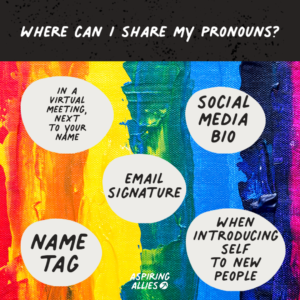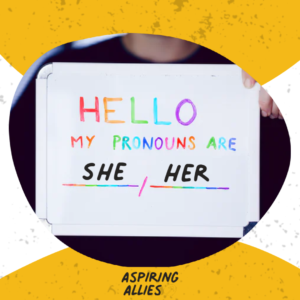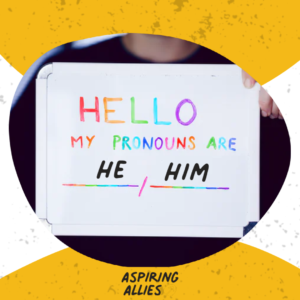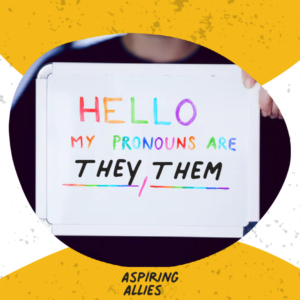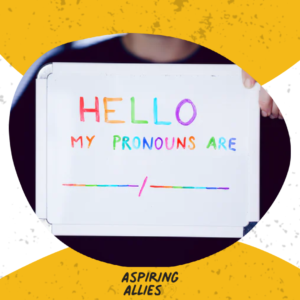Do you ever feel the pressure to come out to people you meet/patients?
‘All the time.
I was really frightened about coming out when I was younger even though I have a supportive family. I knew that they would be fine and they would love me regardless. But I know that for many people, even me with a supportive family, there is the fear of being rejected, regardless of how rational that is.
Since then, I think I’ve kind of forced myself to be quite extroverted at work. It started out as a very conscious thing and now it just means not holding back on things, consciously using my language and not missing out words e.g. rather than using Partner, using Wife.’
Has there been any significant points in your life that has made you consider being more active in being open about your personal life at work?
‘After I had my first child, I realised I needed to do more at work. Everybody knew that I was married to a woman at that point. I felt it was my responsibility to do more because at that point I need to do my bit to make the world the better for her because she didn’t ask to come into this situation with two mums and that was kind of a bit of an eye opener for me that it is actually my responsibility.
To make her situation more accepted, at work I made a real conscious effect to absolutely not hide who I am but that doesn’t mean that it was easy. For example, I was on a training course last week for three days, I would probably have to come out 6-10 time a day last week, which I am used to but does not take away from the additional mental energy to do so in assessing with each person ‘Is this a safe place?’, ‘Does this person seem receptive?’, ‘Do they want to know?’, and ‘Why do they want to know?’.
I put on my name badge ‘she/they’ as my pronouns and it was really lovely that I had so many people ask my why I’d put ‘they’ as a pronoun which was great. Even a few years ago, that would have been unheard of because they would have had the assumption on themselves that they should know, so they shouldn’t ask.’



